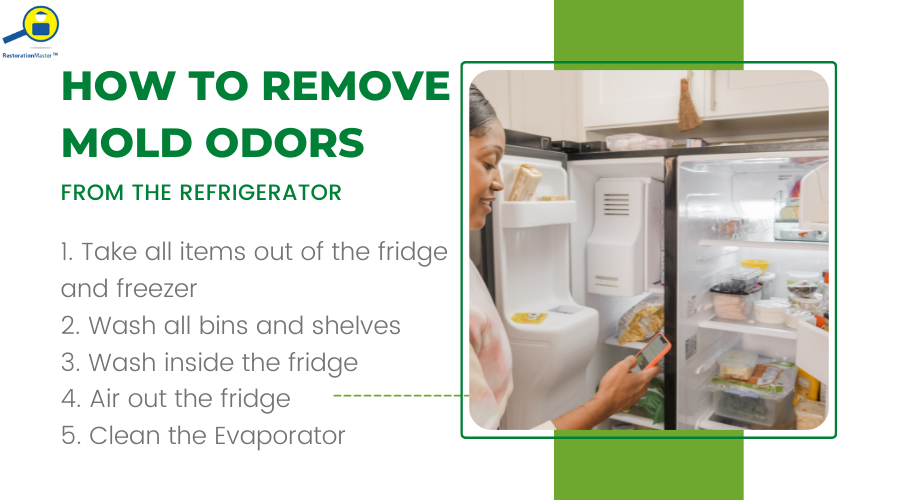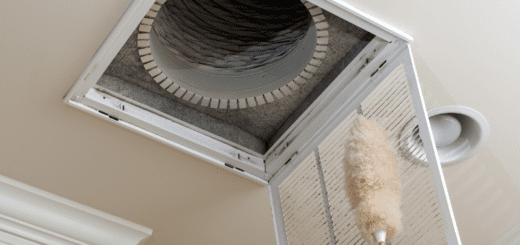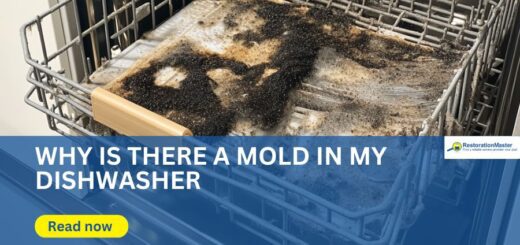How to Prevent Mold Growth in Your Refrigerator
If you notice moldMold is a type of fungus that grows in damp or humid conditi... More in your refrigerator, it is important to react quickly before it spreads further and causes staining, spoiling of the items inside it, or even damage to the appliance itself. Therefore, you should know the reasons why moldMold is a type of fungus that grows in damp or humid conditi... More forms and how to remove it if needed.
You can remove the moldMold is a type of fungus that grows in damp or humid conditi... More from your refrigerator yourself, however, if you are unable to do so, make sure to call a professional mold removal company to remove it and ensure that it does not come back.
What causes mold in the fridge?
Moldy food:
MoldMold is a type of fungus that grows in damp or humid conditi... More in your fridge is generally caused by rotting food. If there is a moldy piece of food, make sure that you throw it away as soon as you notice it as mold spores spread through the air and through surface contact. If you have one piece of food in the fridge that is moldy, it could spread to other items in your fridge because moldMold is a type of fungus that grows in damp or humid conditi... More has the perfect environment to grow in the fridge where it is dark and moist.
Mechanical issues:
If you have a mechanical issue with your fridge, you will notice that your food rots quickly. Also, if you experience some moldMold is a type of fungus that grows in damp or humid conditi... More and you try to clean it, but it keeps coming back, this may be a sign of a mechanical issue and you will need to reach out to an appliance professional so your fridge can be fixed.
How dangerous is fridge mold?
If you have moldMold is a type of fungus that grows in damp or humid conditi... More in your fridge, it can become an issue as it can cause allergic reactions such as sinus congestion, coughing, irritated eyes, rashes, and more. These reactions can be a big problem for those who have compromised immune systems, pregnant women, young children and the elderly. MoldMold is a type of fungus that grows in damp or humid conditi... More in your fridge can also contaminate your food and make you sick if you eat it.

How can mold in your fridge be removed?
The best option for cleaning moldMold is a type of fungus that grows in damp or humid conditi... More in your fridge is distilled white vinegar. To clean your fridge, you should first remove all the shelves and drawers and spray them with vinegar. They should sit for a few minutes while you spray the entire inside of your fridge. Make sure to be thorough. Next, scrub the surface of your fridge, then wipe it down with a clean piece of cloth and dry it. You should repeat this step as needed and make sure all rags that come in contact with moldMold is a type of fungus that grows in damp or humid conditi... More are thoroughly washed with hot water and detergent. If you notice that the rubber seal around the door has mold, you can remove it by using 1 tablespoon of bleach mixed with 1 quart of water. If you want your fridge to smell fresh, you can also add a box of baking soda and some lemon wedges.
Preventing Mold in Your Fridge
MoldMold is a type of fungus that grows in damp or humid conditi... More can be prevented if you take precautions on what you keep and how you keep items in your refrigerator. Here are a few tips:
Keep a box of baking soda in your fridge:
Keeping baking soda in your fridge prevents odors. Make sure you replace the box after several months so it can continue to smell fresh. There are also various fridge odorAn odor is a smell, often detectable by the human nose, whic... More absorbers available on the market that can help your fridge smell fresh and may last longer than baking soda.
Tightly seal all containers in your fridge:
You should make sure that all containers that are kept in your fridge are closed and sealed tightly, that way air does not escape, and you can avoid mold. You can use glass containers for meat, poultry, and fish. You can also store items in plastic bags, however, you should make sure to remove as much air as possible to keep the food fresh.
Meats should be used quickly:
Whether it is beef, chicken, or fish, you should try and use meat soon after purchase. The longer you leave meat in the fridge, the more likely bacteria will form on them that can harm you and your family.
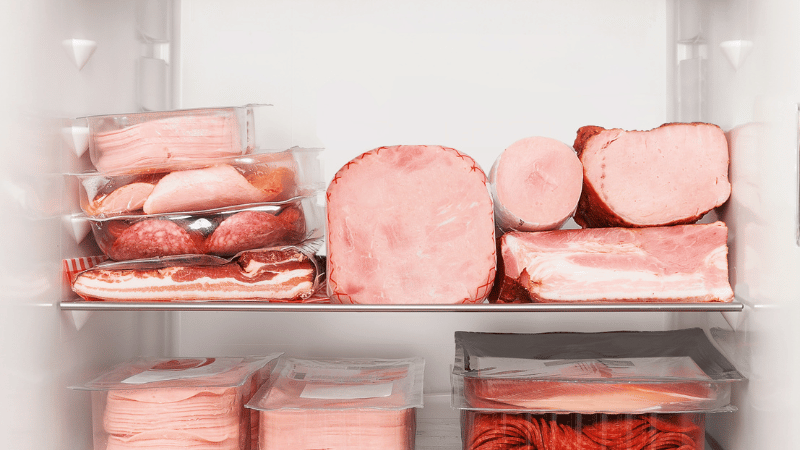
Look through the contents of your fridge often:
You should go through the contents of your fridge at least once per week. This will allow you to check all of the items that might have gotten pushed to the back or have been in the fridge for too long. If you are unsure how long the item has been in the fridge, make sure to throw it away. If you leave moldy food in the fridge, it can contaminate other food.
You should clean your fridge once a season:
Your fridge should be cleaned at least every 3-4 months or once per season. Start by emptying everything from the fridge and putting the items in a cooler. Make sure to clean it well from the inside, which includes all compartments, and the outside to remove all germs. Once you’ve cleaned and dried your fridge, you can put all of the items back where they belong.
Be aware of items that should not be stored in the fridge
Here are a few foods you should avoid storing in the fridge:
- Bread should not be kept in the fridge as it will get moldy quicker.
- Cucumbers can decay in the fridge and are best kept at room temperature.
- Donuts can become stale quicky if you keep them in the fridge. It is always best to keep them on the counter instead and keep them covered.
- Potatoes should not be kept in the fridge as starches within them will turn into sugar after some time. They should be kept in the pantry instead.
- Garlic should be kept in the pantry in a well-ventilated area as it can moldMold is a type of fungus that grows in damp or humid conditi... More quicky if kept in the fridge.
- Coffee and coffee beans should not be kept in the fridge as they can lose their flavor.
- Honey should not be kept in the fridge as it can crystallize. It should be kept in the kitchen cabinets.
- Peanut butter should not be kept in the fridge. Instead, it is best to keep it at room temperature.
- Molasses should not be kept in the fridge as this will change its consistency.
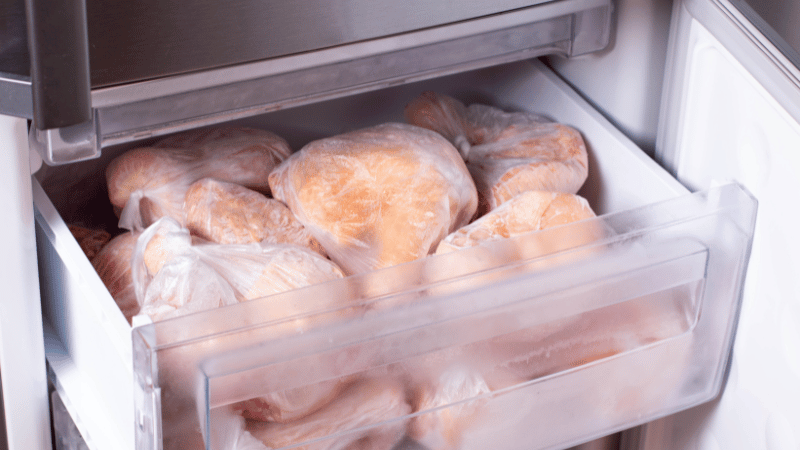
Other things you can do to prevent mold in your fridge include:
- Try to eat the food in your fridge before it goes bad.
- If food starts to rot, discard it right away.
- Write down the purchase date for the foods you are storing. This will help you figure out if the food is edible when you are cleaning your fridge.
- Clean or replace the filter for your fridge as directed by the fridge manufacturer
Even if you follow all of the precautions listed above to keep your fridge mold-free, you may still experience it at some point. You should always try to clean the mold yourself first and if you are unsuccessful, make sure to call the professionals.
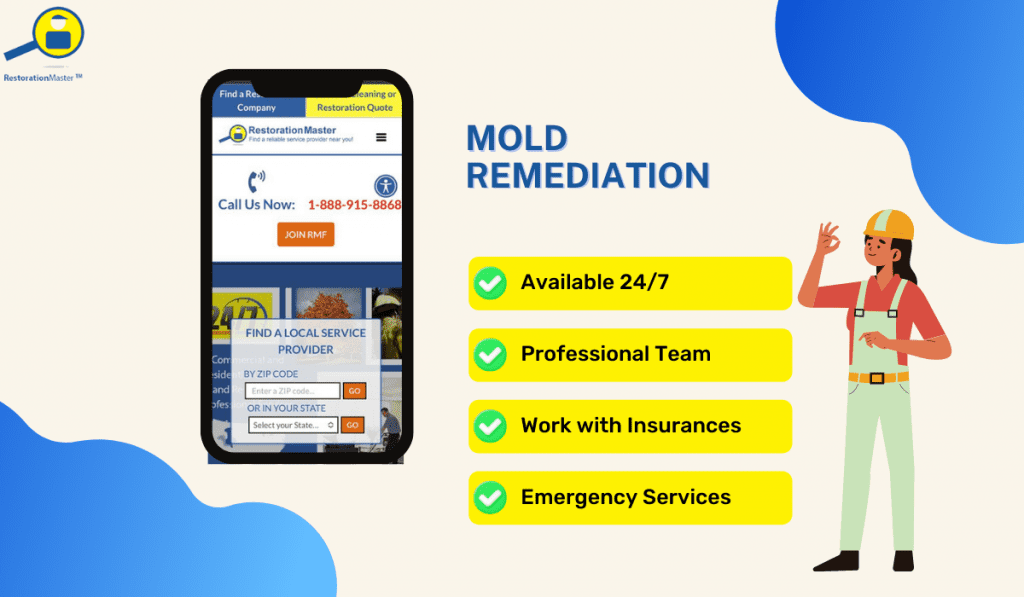
If you are experiencing moldMold is a type of fungus that grows in damp or humid conditi... More growth at your property, RestorationMaster can help as we offer mold remediation services to homes and businesses nationwide. MoldMold is a type of fungus that grows in damp or humid conditi... More growth is usually caused by increased moisture levels in the environment. MoldMold is a type of fungus that grows in damp or humid conditi... More can eat away at surfaces such as building materials which can cause major property damage. If you notice moldMold is a type of fungus that grows in damp or humid conditi... More at your property, make sure to call our professionals right away for moldMold is a type of fungus that grows in damp or humid conditi... More removal services.










